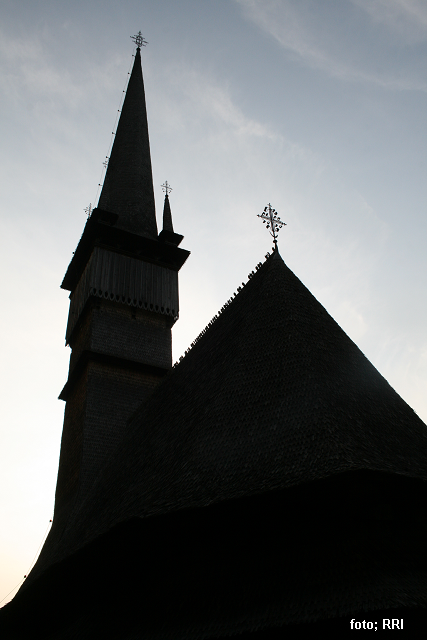Racial hygiene and its symbolic condemnation in Romania
Bucharest's Parliament Palace hosts mock trial of leading Nazi eugenists.

Steliu Lambru, 07.08.2023, 14:00
People’s attitude towards their peers throughout history is a very sensitive subject in today’s historiography. Many demand justice for the crimes and abuses committed in the past, even though this act of justice comes too late for the victims and has no consequences for the guilty. Nazism and communism were both regimes of a strong repressive and genocidal nature, while different in the groups they targeted, and they shared many of the ideas and methods of causing harm. They were inspired by the emergence and reckless dissemination, within democratic societies, of criminal ideas and practices such as eliminating the possibility of people with disabilities to be born through the use of sterilisation, as was the case of systematic policies, or through physical liquidation, as was the case of concentration camps.
In many European and North-American countries there existed proposals and even applications of policies to sterilise people with disabilities, and Romania was no exception. However, sterilisation policies were not restricted to people with disabilities, but were also proposed for other categories of people, such as Jews, Roma and gay people. Responsible for these ideas and practices were both scientists like doctors, biologists and anthropologists and political activists. Eugenics was the science that promoted the elimination of people with defects, believing this would ensure the health of the human species.
The Parliament Palace in Bucharest was the venue of a mock trial for one of the leading eugenists of the Nazi regime in Germany. This was a re-enactment of a similar trial held at the headquarters of the United Nations Organisation on 31st January 2023 organised by the Social Excellence Forum for a group of young people aged between 15 and 22, from several countries, including Romania. The actions and responsibilitiesof Ernst Rüdin, a German-language Swiss psychiatrist, geneticist and eugenist who lived between 1874 and 1952 and who is considered the father of the Nazi racial hygiene, were interrogated. It was a symbolic trial for educational purposes of ideas that led to people being killed, a trial that was also attended by pupils from several high schools from Romania.
Marius Turda, who teaches the history of medicine at Oxford Brookes University, in the UK, and one of the most reputed historians of eugenics, was asked if Nazi Germany was the first and only country in the world to conduct a sterilisation policy for those it considered defective: Sterilisation laws existed in many countries at that time. The United States was the country with the most numerous compulsory sterilisations, ahead of Adolf Hitter’s Germany. Certainly, the difference is that there was no federal law in the United States. Each state applied the law the way it wanted. By 1933 there were 30 states that had introduced compulsory sterilisation. It is estimated that between 1910 and 1980, nearly 80,000 people were sterilized in the United States.
Marius Turda was asked if Romanian physicians played a role in the world eugenics movement and what their contributions to the sterilisation policies were: Yes, they played a role indeed. In 1935, the Romanian Society of Eugenics and the Study of Heredity, founded and led by the famous scientist Gheorghe Marinescu, was one of the founding members of the International Eugenics Federation of Latin Societies. They also promoted sterilisation. Already in 1912, the gynecologist Constatin Andronescu suggested the introduction of prenuptial certificates and the sterilisation of the mentally ill. In 1921, Ioan Manliu, another physician, highly influenced by the German and American model of eugenic sterilisation, suggested the sterilisation of all degenerate persons in Romania. In 1931, the same physician suggested that we had to sterilize five or six million Romanians for the improvement of the race to have an effect. In 1931, the Neurological, Psychological, Psychiatric and Endocrinological Congress, which was led by Dr. Constantin Parhon, proposed to the Health Minister to introduce a law on voluntary sterilisation. Finally, at the beginning of 1940, the Roma minority was attacked, and they proposed its sterilisation.
The court within the Romanian Parliament plenary symbolically sentenced Ernst Rüdin to life imprisonment, as he was found guilty of three of the four charges. Besides Rüdins condemnation they also condemned the ideas that caused so much suffering to many hundreds of thousands of people with disabilities. (CM, LS)






























